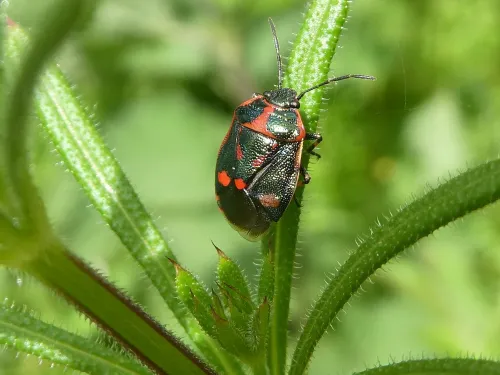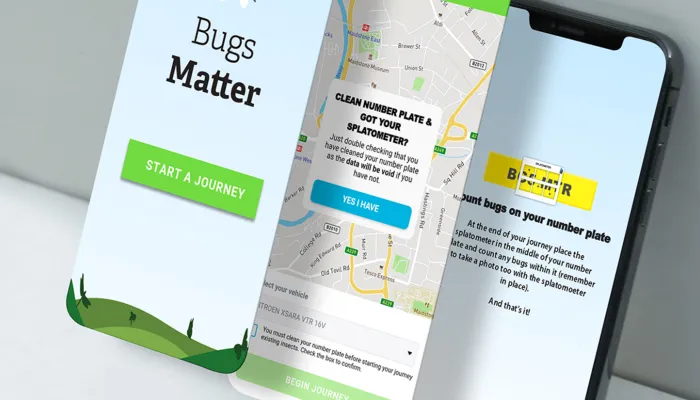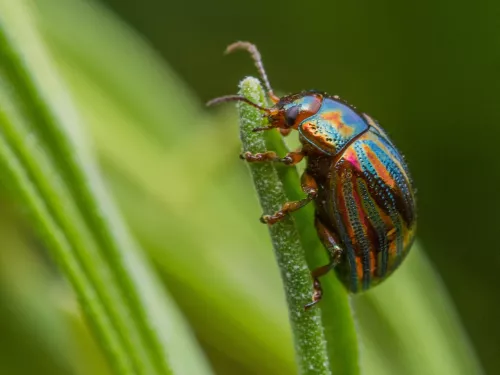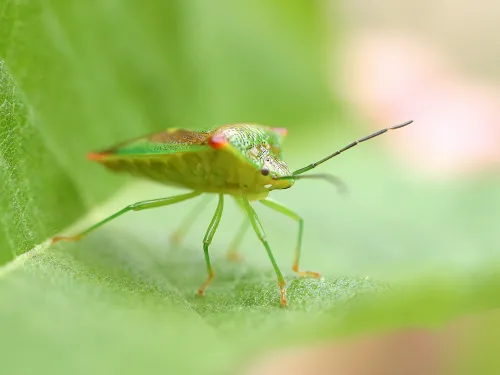
New data suggest that insect life continues to decline in Kent
The troubling extent of insect declines in Kent has been highlighted once again by the results of the 2025 Bugs Matter citizen science survey published today

Finding fewer squashed bugs on car number plates is concerning because it suggests their populations may be in troubleDr Paul Tinsley Marshall, Conservation Evidence Manager at Kent Wildlife Trust
The survey, which was originally developed by the RSPB in 2004 is based on the ‘windscreen phenomenon,’ a term given to the observation that people tend to find fewer insects squashed on the windscreens of their cars compared to several decades ago. Kent Wildlife Trust's previous survey in 2019 found 50% fewer bugs than in 2004.
There is growing evidence of insect decline on a global scale, caused by habitat loss and pesticides. The consequences are potentially catastrophic for the integrity of our ecosystems, the future survival of other wildlife and the pollination of crops.
However, evidence is still lacking or only partly understood for many insect groups and species. Gathering evidence to show the need for urgent action is the first step in making a difference. In the UK only butterflies and moths have been monitored in enough detail to allow trends to be fully understood.
Dr Paul Tinsley Marshall, Conservation Evidence Manager at Kent Wildlife Trust said:
“Finding fewer squashed bugs on car number plates is concerning because it suggests their populations may be in trouble. The new Bugs Matter app has the advantage of being indiscriminate - sampling any and every insect hovering or flying about like aerial plankton. The main causes of their decline are chemical use across our countryside, road verges and gardens, and habitat loss - but we need lots more data to determine trends and people to take the survey safely during their essential travel. This will strengthen our call for a reduction in pesticide use and better, more joined up insect habitats as part of a Nature Recovery Network.”
Craig Macadam Conservation Director for Buglife added:
“Many people remark on not having to clean their windscreens because of bug splatter as much as twenty years ago and alarming data has come in from Germany on the decline in flying insects. Bugs Matter gives every citizen the opportunity to take part in important monitoring that can alert us to the current declines in the United Kingdom giving more impetus and direction to the vital work of arresting these declines.”
Download the app which is available free in both IOS and Android.be ready to survey from 1 June to 31 August 2021.
For more info please visit: kentwildlifetrust.org.uk/bugs-matter.

The troubling extent of insect declines in Kent has been highlighted once again by the results of the 2025 Bugs Matter citizen science survey published today

Since May, an army of citizen scientists has been embarking on a unique mission - counting bug splats on car number plates to help monitor the health of the UK and republic of Ireland’s insect populations.

The Bugs Matter survey determined bug splats on number plates have fallen by 67% since the app was launched in 2021. Conservationists describe the outlook for Kent as “seriously concerning” but acknowledge that more data is required to determine…